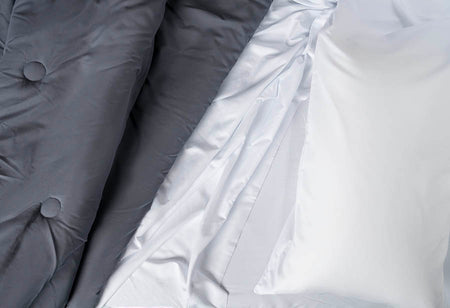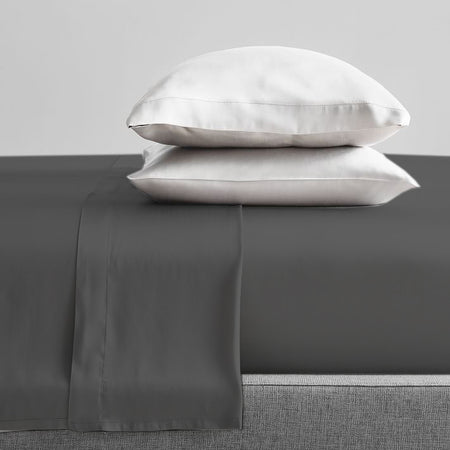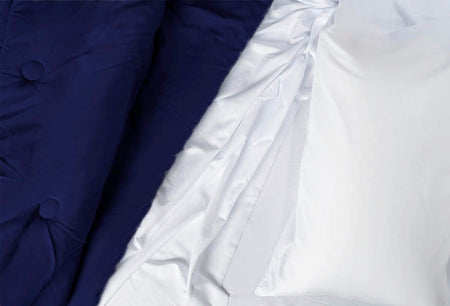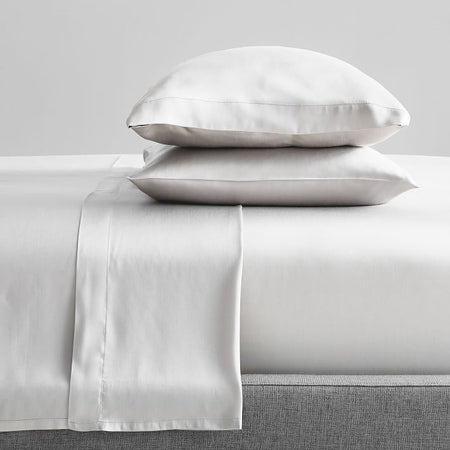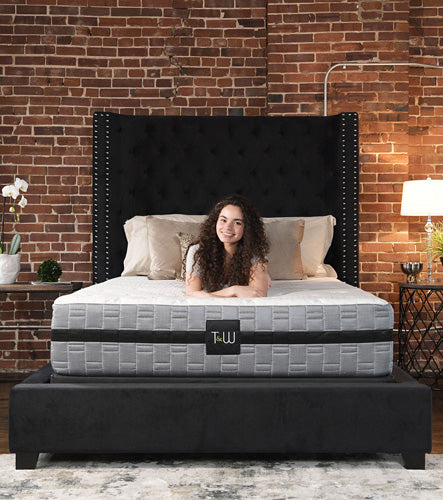How long have we been hearing about how the tryptophan in turkey makes us sleepy at Thanksgiving dinner?
“Oh honey, can I help clean up later? I ate too much turkey.”
“Shovel snow? Outside? Now? But I ate too much turkey.”
“No, no. I wasn’t sleeping in front of the tv. I was just resting my eyes. It was all that turkey.”

Finally, the Truth About Turkey
It’s a fact. The amino acid tryptophan, that’s found in turkey, makes us sleepy. But the truth is there are many foods high in tryptophan. Here is a list:
- Milk - 732mg per quart
- Canned tuna - 472mg per ounce
- Turkey - 410mg per pound
- Oats - 147mg per cup
- Cheese - 91mg per ounce
Turkey Has An Accomplice
So if the turkey isn’t absolutely loaded with tryptophan, then what is it that makes us sleep?
Could the masked potatoes, sweet yams, mac and cheese, stuffing, cranberry sauce, cornbread, and pumpkin pie with ice cream have anything to do with it? Yup, it’s the carbs. When you combine the tryptophan in turkey with carbs, you get the perfect lullaby for your body.
As Insulin Goes Up, We Go Down For the Count
Every time we eat, our level of insulin goes up in order to help our digestive system process the food we just ate. For a normal, healthy person, slightly elevated blood sugar is expected.
So when you eat a normal portion size of turkey with all the fixings, then chances are you’ll be okay. But where’s the fun in eating a normal amount during the Thanksgiving holiday? That’s just plain un-American.

Food Coma, Brain Fog, and Postprandial Somnolence
It’s 2022, so the tryptophan excuse won’t work anymore. So instead, try this proclamation after Thanksgiving dinner this year:
“Please excuse me, everyone; I need to lie down; my postprandial somnolence is bad this year.”
Chances are you won’t have to lift a finger till Friday noon when someone finally looks up the definition of postprandial somnolence. Of course, someone else may try to get out of work by springing this one on you first, so be prepared. According to Wikipedia,
“Postprandial somnolence (colloquially known as a food coma, after-dinner dip, and postprandial sleep is a normal state of drowsiness or lassitude following a meal. Postprandial somnolence has two components: a general state of low energy levels related to activation of the parasympathetic nervous system in response to mass in the gastrointestinal tract, and a specific state of sleepiness.”
How To Predict Post-Meal Sleepiness
Isn’t modern science wonderful? Based on what we know, how sleepy one feels after Thanksgiving dinner is no longer a guessing game. Take a look at some predictions based on food intake:
- High-tryptophan food (like turkey or Alaskan Sea Lion) with high carbohydrate intake.
Prediction: Sleepy
- High-tryptophan food (like turkey or Elk meat) with low carbohydrate intake.
Prediction: Not sleepy
- Skip the high-tryptophan food (like seaweed) and low carbohydrate intake.
Prediction: Not sleepy
- Skip the high-tryptophan food (like Sea Lion liver) and high carbohydrate intake.
Prediction: Sleepy
- High-tryptophan food (like turkey or soy protein), high carbohydrate intake, and extra protein.
Prediction: Not sleepy
- High-tryptophan food (like turkey or sesame seeds), low carbohydrate intake, and extra protein.
Prediction: Energetic
- Skip the high-tryptophan food (like Alaskan king crab), high carbohydrate intake, and extra protein.
Prediction: Not sleepy
- Skip the high-tryptophan food (like Halibut), low carbohydrate intake, and extra protein.
Prediction: Pure energizer bunny

Be Sure It’s Not a Sleep Disorder
Being sleepy during the day or even after a normal meal is not normal. If you notice you are sleepy or if you regularly feel like you need a nap, it might be that you have a sleep disorder. Sleep apnea shows up in three forms:
Obstructive Sleep Apnea – is a common form that occurs when the muscles of the throat relax enough for tissues to restrict the airway.
Central Sleep Apnea – occurs when the brain's communication with your muscles that control breathing is somehow affected.
Complex Sleep Apnea Syndrome – occurs when central sleep apnea and obstructive sleep apnea emerge at the same time.
Carbohydrates, Gluten, And Celiac Disease
Carbs don’t just make you sleepy; some people suffer from Celiac disease, a gluten-sensitive enteropathy that’s an immune system response to ingesting food with gluten. Gluten is a protein found in wheat, barley, and rye. Many young people suffer from this, and if left untreated, it can affect their growth and development. If you suspect you or someone you know has this, please consult a doctor.
Could It Be Your Bed?
Today’s mattresses are designed to address various conditions that can hamper a night of restful sleep. One simple example is the motion isolation. If you have a sleeping partner, then when they move around, your sleep might be disturbed.
You don’t have to be jolted wide awake for your sleep to be disturbed. The mattress moving may cause you to change your sleeping position without being fully awake. There are also plenty of other factors that can affect the quality of your sleep. It is always worthwhile to see what’s available from your local sleep experts.
This Thanksgiving Is Extra Special

Thanksgiving is typically the busiest time of travel of the year. That’s because gathering with friends and family to enjoy time together is what we all crave. For a couple of years, the pandemic has made celebrating Thanksgiving especially difficult. Finally, we’ll be able to enjoy it truly and fully. Then, you can be well-rested for your Black Friday shopping excursion!
Celebrating with food is a big part of it, and having a nap at some point might be the perfect treat. Just know that too much celebrating with turkey and carbs can make you less than the life of the party you are naturally.






